1617 rezultatov
-
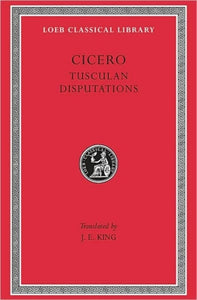 Tusculan Disputations(1927) CICEROWe know more of Marcus Tullius Cicero (106–43 BC), lawyer, orator, politician and philosopher, than of any other Roman. Besides much else, his work conveys the turmoil of his time, and the part he played in a period that saw the rise and fall of Julius CaVezava: Trda44,47 €
Tusculan Disputations(1927) CICEROWe know more of Marcus Tullius Cicero (106–43 BC), lawyer, orator, politician and philosopher, than of any other Roman. Besides much else, his work conveys the turmoil of his time, and the part he played in a period that saw the rise and fall of Julius CaVezava: Trda44,47 € -
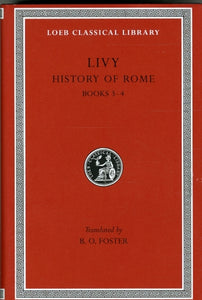 History of Rome, Volume II(1922) LIVYThe only extant work by Livy is part of his history of Rome from the foundation of the city to 9 BC. Of its 142 books, 1–10, 21–45 (except parts of 41 and 43–45), fragments, and short summaries remain.Vezava: Trda44,47 €
History of Rome, Volume II(1922) LIVYThe only extant work by Livy is part of his history of Rome from the foundation of the city to 9 BC. Of its 142 books, 1–10, 21–45 (except parts of 41 and 43–45), fragments, and short summaries remain.Vezava: Trda44,47 € -
 Street Haunting and Other Essays(2014) WOOLF, VIRGINIAVirginia Woolf began writing reviews for the Guardian 'to make a few pence' from her father's death in 1904, and continued until the last decade of her life.Vezava: Mehka18,21 €
Street Haunting and Other Essays(2014) WOOLF, VIRGINIAVirginia Woolf began writing reviews for the Guardian 'to make a few pence' from her father's death in 1904, and continued until the last decade of her life.Vezava: Mehka18,21 € -
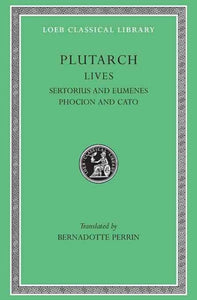 Lives, Volume VIII(1919) PLUTARCHPlutarch (ca. AD 45–120) wrote on many subjects. His forty-six Parallel Lives are biographies planned to be ethical examples in pairs, one Greek figure and one similar Roman, though the last four lives are single. They not only record careers and illustriVezava: Trda44,47 €
Lives, Volume VIII(1919) PLUTARCHPlutarch (ca. AD 45–120) wrote on many subjects. His forty-six Parallel Lives are biographies planned to be ethical examples in pairs, one Greek figure and one similar Roman, though the last four lives are single. They not only record careers and illustriVezava: Trda44,47 € -
 Roman History, Volume VI(1917) DIO CASSIUSDio Cassius (Cassius Dio), ca. AD 150–235, was born in Bithynia. Dio’s work is a vital source for the last years of the Roman republic and the first four Roman emperors.Vezava: Trda44,47 €
Roman History, Volume VI(1917) DIO CASSIUSDio Cassius (Cassius Dio), ca. AD 150–235, was born in Bithynia. Dio’s work is a vital source for the last years of the Roman republic and the first four Roman emperors.Vezava: Trda44,47 € -
 Lives, Volume VII(1919) PLUTARCHPlutarch (ca. AD 45–120) wrote on many subjects. His forty-six Parallel Lives are biographies planned to be ethical examples in pairs, one Greek figure and one similar Roman, though the last four lives are single. They not only record careers and illustriVezava: Trda44,47 €
Lives, Volume VII(1919) PLUTARCHPlutarch (ca. AD 45–120) wrote on many subjects. His forty-six Parallel Lives are biographies planned to be ethical examples in pairs, one Greek figure and one similar Roman, though the last four lives are single. They not only record careers and illustriVezava: Trda44,47 € -
 Greek Anthology, Volume V(1918)The Greek Anthology (Gathering of Flowers) is a collection over centuries of some 4500 short Greek poems (called epigrams but seldom epigrammatic) by about 300 composers.Vezava: Trda44,47 €
Greek Anthology, Volume V(1918)The Greek Anthology (Gathering of Flowers) is a collection over centuries of some 4500 short Greek poems (called epigrams but seldom epigrammatic) by about 300 composers.Vezava: Trda44,47 € -
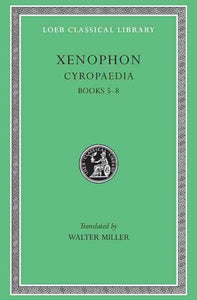 Cyropaedia, Volume II(1914) XENOPHONCyropaedia is a historical romance on the education of the sixth-century BC Persian king Cyrus the Great that reflects Xenophon’s ideas about rulers and government.Vezava: Trda44,47 €
Cyropaedia, Volume II(1914) XENOPHONCyropaedia is a historical romance on the education of the sixth-century BC Persian king Cyrus the Great that reflects Xenophon’s ideas about rulers and government.Vezava: Trda44,47 € -
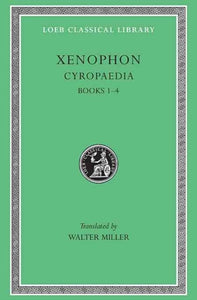 Cyropaedia, Volume I(1914) XENOPHONCyropaedia is a historical romance on the education of the sixth-century BC Persian king Cyrus the Great that reflects Xenophon’s ideas about rulers and government.Vezava: Trda44,47 €
Cyropaedia, Volume I(1914) XENOPHONCyropaedia is a historical romance on the education of the sixth-century BC Persian king Cyrus the Great that reflects Xenophon’s ideas about rulers and government.Vezava: Trda44,47 € -
 History of the Wars, Volume I(1914) PROCOPIUSHistory of the Wars by Procopius (late fifth century to after AD 558) consists largely of sixth-century military history, with much information about peoples, places, and special events. Powerful description complements careful narration. Procopius is jusVezava: Trda44,47 €
History of the Wars, Volume I(1914) PROCOPIUSHistory of the Wars by Procopius (late fifth century to after AD 558) consists largely of sixth-century military history, with much information about peoples, places, and special events. Powerful description complements careful narration. Procopius is jusVezava: Trda44,47 € -
 Julian, Volume II(1913) JULIANThe surviving works of the Roman Emperor Julian “the Apostate” (AD 331 or 332–363) include eight Orations; Misopogon (Beard-hater), assailing the morals of the people of Antioch; more than eighty Letters; and fragments of Against the Galileans, written maVezava: Trda44,47 €
Julian, Volume II(1913) JULIANThe surviving works of the Roman Emperor Julian “the Apostate” (AD 331 or 332–363) include eight Orations; Misopogon (Beard-hater), assailing the morals of the people of Antioch; more than eighty Letters; and fragments of Against the Galileans, written maVezava: Trda44,47 € -
 Kurt Vonnegut: Letters(2014) VONNEGUT, KURTThis collection of Vonnegut’s letters is the autobiography he never wrote – from the letter he posted home upon being freed from a German POW camp, to notes of advice to his children: ‘Don’t let anybody tell you that smoking and boozing are bad for you.Vezava: Mehka21,02 €
Kurt Vonnegut: Letters(2014) VONNEGUT, KURTThis collection of Vonnegut’s letters is the autobiography he never wrote – from the letter he posted home upon being freed from a German POW camp, to notes of advice to his children: ‘Don’t let anybody tell you that smoking and boozing are bad for you.Vezava: Mehka21,02 € -
 Kant's Little Prussian Head and Other Reasons Why I Write(2021) MESSUD, CLAIREA collection of personal and critical essays on everything from childhood to womanhood, literature to visual arts and the relationship between form and meaning in storytelling.Vezava: Mehka14,01 €
Kant's Little Prussian Head and Other Reasons Why I Write(2021) MESSUD, CLAIREA collection of personal and critical essays on everything from childhood to womanhood, literature to visual arts and the relationship between form and meaning in storytelling.Vezava: Mehka14,01 € -
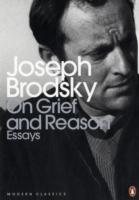 On Grief And Reason(2011) BRODSKY, JOSEPHA collection of essays, that casts a reflective eye on the author's experiences of early life in Russia and exile in America. With erudition, it explores subjects as varied as the dynamic of poetry, the nature of history and the plight of the emigre writeVezava: Mehka21,02 €
On Grief And Reason(2011) BRODSKY, JOSEPHA collection of essays, that casts a reflective eye on the author's experiences of early life in Russia and exile in America. With erudition, it explores subjects as varied as the dynamic of poetry, the nature of history and the plight of the emigre writeVezava: Mehka21,02 €


































